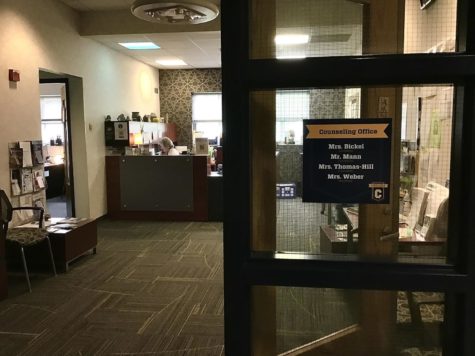Opinion: Don’t Wait to Reach Out
A teenager staying home for months on end in any regular circumstance would bring massive concerns, as a mental health decline is nearly inevitable when someone is forced into that kind of isolation. Unfortunately, the reality for many teenagers has been none the better. Social isolation is something most students have been going through, and CHS has been attempting to help as much as possible. The school has introduced a great deal of new features to help students with their mental health. While the response from the school hasn’t been the most helpful in many ways, the school’s real barrier from being able to help students is the pandemic itself, which is why it’s more important than ever for students to reach out for help if they need it.
CHS has been making an effort to try to help its virtual students out when it comes to their mental health and well-being. The new lessons and adjustments are designed to give students the tools they need to take care of themselves during a time when there’s little outside assistance. Classes are shorter than usual in order to keep students from burning out, weekly Social and Emotional Learning (SEL) lessons are released to educate students on how to care for themselves, asynchronous Fridays have been put into place and mindfulness is continuing to be taught. Since there are limited options for mental health care online, the school’s goal is to lessen the load on students and help them destress.
The issue with the general handling of mental health issues is that they’re just that: general. SEL lessons taught are somewhat vague, and the shorter classes only increase homework for students. At first glance, the way that the school is trying to help students seems a bit disingenuous because positive thinking isn’t always a great solution to painful experiences. Thinking positively in the middle of a pandemic has felt somewhat synonymous with burying your feelings. It’s not difficult to view it all as a waste of time when it feels like the world is in disarray. After all, there are bigger fish in the sea than gratitude and regular exercise. There’s a pandemic, schoolwork, home issues and any number of other struggles a student could be going through during these times.
There are serious valid criticisms to be made against the school. But, in all honesty, what more can we expect from our teachers and administrators? After all, there is no one way that anybody has reacted to the pandemic. Everybody has coped differently during the months we’ve been socially isolating. There is no one reaction, so there can be no one-size-fits-all treatment for anyone’s mental well-being. No matter how hard administration tries, nothing can work for everyone.
In social isolation, there has to be a new emphasis on the importance of students reaching out for help. Unless individual students who are struggling stand up and reach out to teachers or mental health services at the school, the school is almost entirely unable to help with what they are feeling. Yes, the encouragement from the school could be much better, but administrators can’t read minds. When they know specifics of what’s going on when someone needs help, they are infinitely more equipped to help. It isn’t fair for students to lose whatever support systems they had in place before quarantine, but we can’t expect as much help from them anymore because they don’t know what goes on behind closed doors or, in this case, blank screens.
Now, more than ever, it’s the time for struggling students to take on the responsibility of seeking help. The school can give out general advice all day long, which may be helpful for some, but there is practically nothing they can do to directly help the individual anymore. There is no checking-in in the halls for students at home. There is no assessment of who may need help. If a person needs help, they need to reach out, because, for someone really struggling, weekly social and emotional lessons are going to do just about nothing. Mental health professionals can only help when they know how to help.

Anna is a Senior, and this is her second year at the Bleu Print. She is a singer and performer with the CHS Theatre Guild, Chamber Choir, and Company C....





